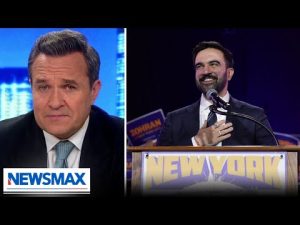The recent return of late-night talk show host Jimmy Kimmel to the airwaves may have sparked reactions across the board, but the underlying issues reflect broader problems within the media landscape. Kimmel’s initial suspension came in the wake of insensitive comments regarding a national tragedy. The backlash from viewers and fellow media personalities was swift, showcasing how public figures can face consequences for their words. This situation exemplifies a critical responsibility that comes with free speech: the acknowledgment of potential repercussions when such speech crosses the line into insensitivity.
It is essential to note that there is a considerable difference between exercising free speech and lacking accountability for what one says. Those who believe that Kimmel’s experience is an affront to free speech misunderstand the concept entirely. Free speech does not equate to freedom from the fallout that arises from careless or harmful comments. In this case, Kimmel’s temporary suspension was a direct response from Disney, aimed at mitigating the emotional turmoil within the country surrounding sensitive events. The repercussions of his words were not merely the product of an overzealous cancel culture; they were rightly aligned with the consequences that anyone faces when they engage in poor judgment.
The media reaction to Kimmel’s return has revealed deeper divides between left and right ideological viewpoints. Many on the left were quick to downplay the significance of Kimmel’s remarks, often deflecting blame onto others, such as former President Trump. On the other hand, conservative commentators have pointed out the blatant double standards present in how Kimmel’s behavior was perceived compared to others in the industry. This pattern highlights the left’s proclivity to play the blame game rather than take responsibility for their own media figures and narratives.
Moreover, the handling of local ABC affiliates during this situation begs further examination. The decision to pull Kimmel’s show, while ABC decided to bring him back, showcases an industry rife with inconsistencies. It raises questions about the loyalty of media organizations to their viewers and the principles they claim to uphold. When one network prioritizes audience sentiment and another opts for ratings, it becomes clear that genuine accountability has taken a back seat.
Kimmel’s situation isn’t just about the individual; it’s symptomatic of a more extensive issue within the media. Many viewers are increasingly aware of the biases that taint news coverage. Various platforms, such as Ground News, are helping people see the split narratives that exist in today’s media ecosystem. Viewers are rightly seeking transparency and truth instead of the sensationalized, often politically motivated commentary that dominates so many programs.
As Kimmel prepares to return to the air, it’s worth noting that his comeback isn’t just the result of a few days of reflection. It underscores a larger conversation about media ethics, accountability, and the role humor plays in today’s society. Ultimately, it serves as a reminder that free speech encompasses both the right to express oneself and the obligation to consider the potential impact of that expression on the public discourse.







